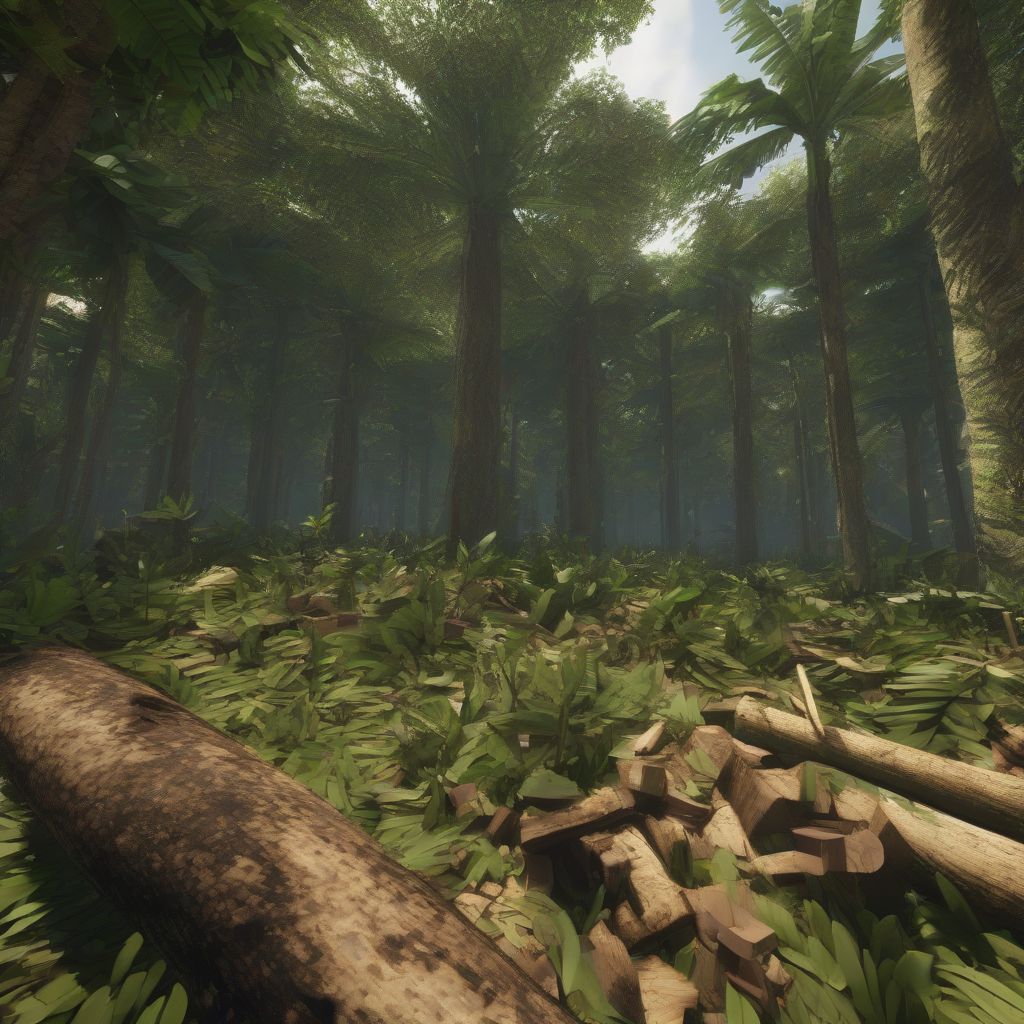Imagine swimming alongside a majestic blue whale, witnessing deforestation in the Amazon rainforest firsthand, or even traveling through time to see the devastating effects of pollution on coral reefs. All of this, without even leaving your living room. This is the power of virtual reality (VR) – a technology with the potential to revolutionize how we understand and address environmental and conservation challenges.
Bridging the Disconnect: Bringing Environmental Issues to Life
One of the biggest hurdles faced by environmentalists is the disconnect between environmental issues and people’s daily lives. It’s easy to ignore problems that seem distant or abstract. VR tackles this issue head-on by creating immersive, emotionally engaging experiences that connect people to the natural world in a powerful way.
Experiential Learning for Deeper Understanding
Instead of just reading about climate change or watching a documentary, VR allows individuals to experience the impact firsthand. Imagine walking through a virtual forest ravaged by wildfires or witnessing the rising sea levels engulfing coastal communities. These visceral experiences can evoke strong emotions and foster a deeper understanding of the consequences of environmental degradation.
 Deforestation Impact VR
Deforestation Impact VR
Empowering Empathy and Action
By allowing users to step into the shoes of those directly impacted by environmental issues, VR fosters empathy and encourages action. Studies have shown that VR experiences can lead to significant changes in attitudes and behaviors related to conservation. For example, participants in a VR simulation about ocean acidification were more likely to support pro-environmental policies afterward.
VR as a Powerful Tool for Conservationists
Beyond its ability to raise awareness, VR offers practical applications for conservationists and researchers:
Enhanced Data Visualization and Analysis
VR can visualize complex environmental data in interactive and intuitive ways. Scientists can use VR to explore 3D models of ecosystems, analyze climate change projections, and identify conservation priorities.
Immersive Training and Education
VR provides safe and effective training for conservation professionals. Park rangers can learn how to handle wildlife encounters, firefighters can practice battling virtual wildfires, and students can explore underwater ecosystems without harming the environment.
Virtual Eco-Tourism: A Sustainable Alternative
VR tourism allows individuals to experience the beauty of fragile ecosystems without contributing to their degradation. This can generate revenue for conservation efforts while reducing the negative impact of traditional tourism on the environment.
Challenges and Opportunities: Shaping the Future of VR for Conservation
While VR holds immense promise, several challenges need to be addressed:
- Accessibility and Affordability: Making VR technology accessible to a wider audience is crucial for maximizing its impact on conservation efforts.
- Content Development: High-quality, scientifically accurate VR experiences are essential for ensuring the technology’s effectiveness.
- Ethical Considerations: Developers must be mindful of potential negative impacts, such as desensitization or the displacement of real-world experiences.
Despite these challenges, the future of VR for environmental conservation is bright. As technology continues to advance and become more widely available, VR has the potential to become an indispensable tool for protecting our planet.
Joining the VR Revolution: Taking Action for the Environment
The power of VR to inspire, educate, and empower is undeniable. We all have a role to play in protecting our planet, and VR can help us become more informed and engaged citizens.
- Support Organizations: Explore organizations using VR for conservation and consider donating or volunteering your time.
- Experience VR for Yourself: Visit museums, science centers, or explore VR content online to witness the transformative power of this technology.
- Spread the Word: Share your experiences with others and encourage them to explore the potential of VR for environmental conservation.
Together, we can harness the power of technology to create a more sustainable and thriving future for our planet.
[amazon bestseller=”virtual reality headsets”]
